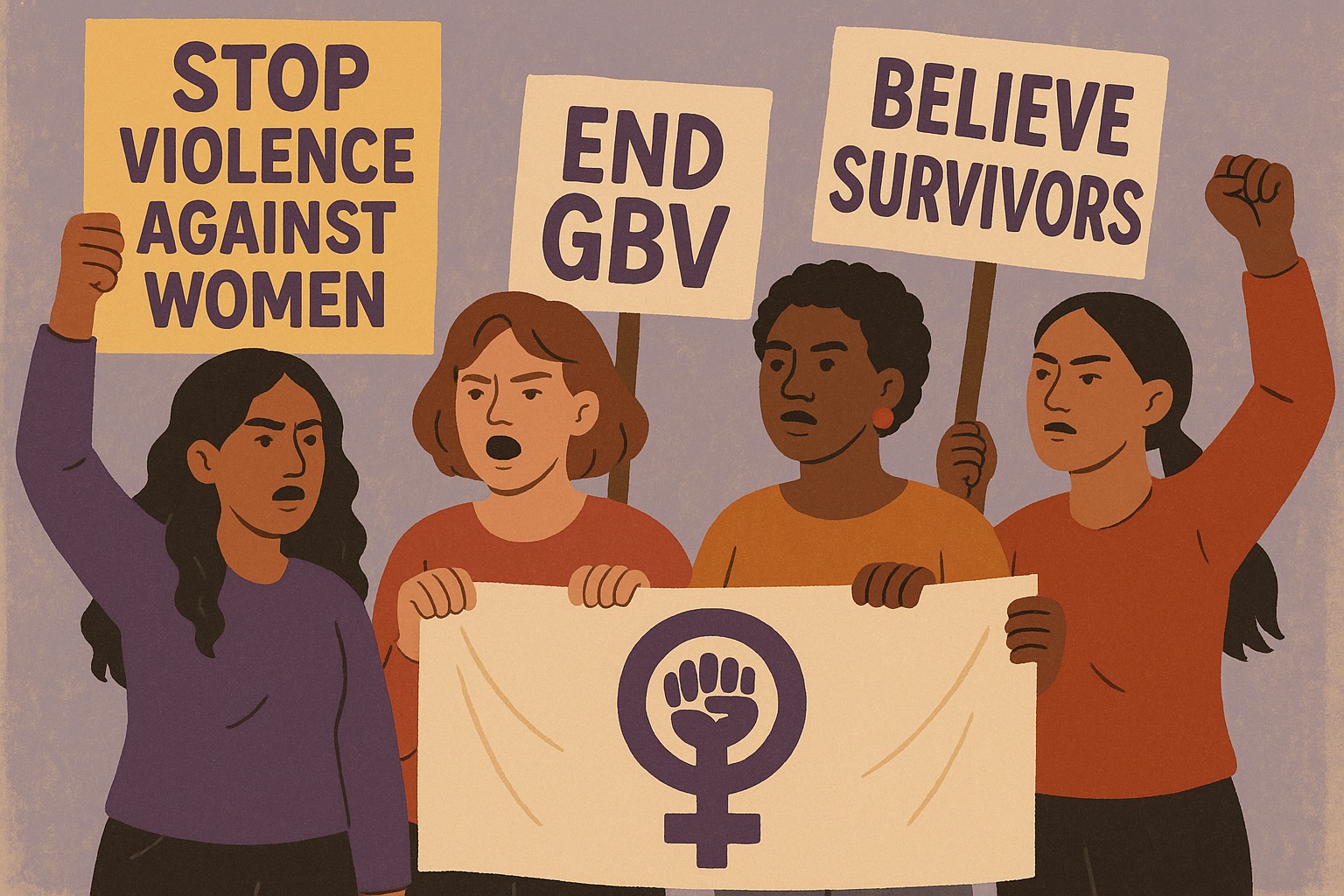📰 Survivor-Led Advocacy Movements Are Transforming the Fight Against Gender-Based Violence in BC
Survivors and advocacy groups in BC are leading powerful movements demanding justice, better funding, and recognition of gender-based violence as an epidemic.

Survivors of intimate partner violence (IPV) and gender-based violence (GBV) in British Columbia are no longer silent. Across the province, they are stepping into the public arena, sharing their stories, leading movements, and demanding systemic change.
From Vancouver to Prince George, survivor-led advocacy is reshaping how the public, policymakers, and media understand GBV. Their calls for action are not just about awareness — they are about accountability and reform. Increasingly, municipalities are listening, with many passing motions declaring GBV an epidemic.
This groundswell of survivor advocacy reflects a growing truth: survivors are not just victims of violence — they are leaders in the fight to end it.
What Survivor Advocacy Looks Like in BC
Survivor-led activism takes many forms, often combining personal storytelling with community organizing. Common advocacy strategies include:
1. Public Rallies & Vigils
Vigils honour the lives of those lost to femicide and IPV, while rallies demand stronger action from governments.
Events often bring together survivors, families, Indigenous leaders, service providers, and allies to raise awareness and demand systemic change.
2. Petitions & Open Letters
Thousands of residents across BC have signed petitions urging the province to declare GBV an epidemic.
Open letters signed by survivor groups and advocacy coalitions put direct pressure on elected officials.
3. Grassroots Survivor-Led Organizations
Peer-led groups provide mutual support, legal navigation help, and public education.
These organizations play a critical role in breaking isolation, especially in rural and Indigenous communities.
4. Media Campaigns & Storytelling
Survivors are courageously sharing their stories through traditional media and social platforms.
By humanizing statistics, these stories challenge stigma and spark widespread public empathy.
Impact of Survivor Voices
Survivor-led advocacy has had measurable influence on BC’s political and cultural landscape:
Amplified Calls for Reform: Survivor movements highlight urgent needs in housing, policing, and justice reform.
Municipal Declarations: Advocacy played a pivotal role in pushing municipalities to formally declare GBV an epidemic, sending symbolic and political messages.
Shifting Public Opinion: Once treated as a “private issue,” GBV is now widely recognized as a public health and safety crisis.
Policy Influence: Survivor voices have shaped conversations about funding for shelters, legal reforms, and survivor-centered services.
Challenges Survivor Advocates Face
While survivor advocacy is powerful, it is not without risks and barriers:
1. Retraumatization
Sharing personal experiences of violence publicly can reopen old wounds and take a toll on mental health.
2. Safety Concerns
Survivors often fear retaliation from abusers or harassment from the public when speaking out.
3. Limited Funding
Survivor-led organizations often operate with little or no funding, relying on volunteers and grassroots fundraising.
Without sustainable support, many groups struggle to expand their impact.
4. Systemic Barriers
Survivors advocating for change sometimes encounter resistance from political institutions slow to prioritize GBV reforms.
Why Survivor Advocacy Matters
Survivor voices bring urgency and humanity to issues often buried under statistics. Their leadership:
Humanizes the Crisis: Personal testimonies remind the public that behind every number is a lived experience.
Drives Political Action: Survivor advocacy makes it harder for governments to ignore systemic failures.
Builds Collective Power: By organizing together, survivors transform individual pain into collective strength.
As one advocate explained at a Vancouver rally: “We are not broken — we are powerful. And we won’t stop until every survivor is safe.”
Conclusion
Survivor-led advocacy movements are the heartbeat of BC’s anti-violence work. By organizing rallies, writing open letters, and leading grassroots campaigns, survivors are transforming personal trauma into public power.
Their courage ensures that GBV is no longer dismissed as a private issue but recognized as a provincial crisis requiring immediate action. Until governments respond with funding, shelter expansion, and systemic reforms, survivor-led advocacy will remain a driving force for change.
FAQs
1. What are survivor advocacy movements in BC?
Grassroots efforts led by survivors to push for systemic reforms in housing, policing, justice, and survivor services.
2. How do survivors advocate for change?
Through rallies, vigils, petitions, media campaigns, and peer-led organizations.
3. Why are survivor voices important?
They humanize statistics, challenge stigma, and drive urgent political and policy action.
4. What challenges do survivor advocates face?
Retraumatization, retaliation risks, lack of funding, and systemic resistance.
5. What impact have advocacy movements had in BC?
They influenced municipal GBV epidemic declarations, raised public awareness, and shifted policy debates.
